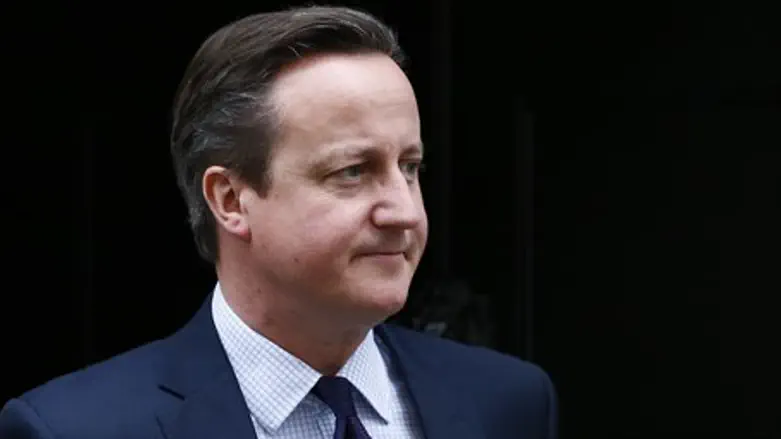
Britain's parliament looks set to vote in favor of joining the bombing campaign against Islamic State (ISIS) in Syria on Wednesday, paving the way for sorties by its planes to start within days.
Prime Minister David Cameron, who stepped up pressure for air strikes after last month's Paris attacks, will lead the House of Commons into more than 10 hours of debate on joining the US-led international military action.
Ministers are confident that lawmakers will then vote "Yes", meaning the first Royal Air Force (RAF) planes could be bombing targets in Syria by the end of the week.
Cameron insists military action is needed to prevent attacks like the ones that killed 130 people in Paris last month, while insisting it will be accompanied by a diplomatic push to resolve the crisis in Syria. His Conservative Party's majority plus support from various other MPs makes a parliamentary victory likely.
"I will be making the arguments and I hope as many members of parliament across all parties will support me as possible," he said on the eve of the vote.
He has also turned up the rhetoric considerably against Labor chief and Opposition Leader Jeremy Corbyn, urging his own MPs not to "sit on their hands" or "walk through the lobbies" with Corbyn and his allies, who he branded "a bunch of terrorist sympathizers," in comments carried by the BBC.
Jeremy Corbyn has come under close scrutiny and criticism since being elected as Labour leader in September over his extensive connections to Islamists and other extremists, as well as his openly-expressed sympathy for terrorist groups. He infamously called Hamas and Hezbollah his "friends," described the assassination of Osama Bin Laden as a "tragedy," and both he and his Shadow Chancellor John McDonnell were once closely associated with the IRA.
Another close ally of Corbyn - former London Mayor Ken Livingstone - came under fire recently after he appeared to justify the 7/7 terrorist attacks in London. Sitting on a BBC panel, Livingstone said former Prime Minister Tony Blair was to blame for the attacks, and described the suicide bombings as "an act of protest"," insisting the terrorists who carried it out "gave their lives" in response to Britain's foreign policy.
Corbyn strongly opposes any bombing campaign in Syria, but has given his MPs the freedom to vote as they wish, opting not to use the party whip after a large number looked set to rebel and vote in favor of the government anyway, in a defiant move which would have seriously damaged his standing.
Several thousand anti-war protesters marched in central London on Saturday and Tuesday in demonstrations organized by the far-left Stop The War Coalition, which Corbyn chaired until shortly after his election as Labour leader.
'Symbolic' move, not militarily decisive
Military experts question how much practical difference Britain will make to the coalition against ISIS jihadists in Syria, adding the move may be more about Britain wanting to be seen to stand shoulder-to-shoulder with allies like France and the United States.
"It will not make a big operational difference," Professor Malcolm Chalmers of military think-tank the Royal United Services Institute (RUSI) told AFP.
"It is important symbolically, useful operationally, but not transformative."
Cameron "emotionally feels very strongly that he should support France in its time of need," added Ben Barry of the International Institute for Strategic Studies think-tank.
Britain already has eight Tornado fighter jets plus an unknown number of drones involved in strikes on ISIS targets in Iraq, an operation it joined last year.
However, it currently only conducts surveillance and intelligence missions over Syria.
In a rare move, weekly Prime Minister's Questions have been cancelled and the parliamentary diary cleared for an all-day debate on the Syria strikes, with a vote expected around 2200 GMT or even later.
The motion up for debate stresses that Britain will not deploy ground combat troops while noting that allies including France and the United States had requested British assistance.
"A willingness to deploy will allay the concern the UK is not a reliable partner," RUSI's Chalmers said.
A YouGov opinion poll last week found that 59 percent approved of Britain joining air strikes in Syria, compared to 20 percent who disapproved, but a survey published on Wednesday showed only 48 percent approved with 31 percent against.
AFP contributed to this report.
